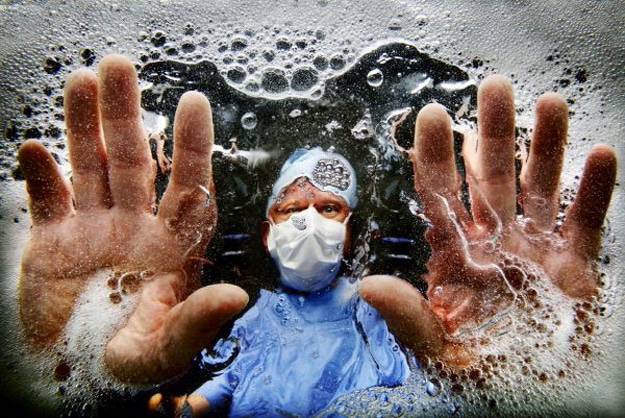I have tremendous respect for doctors, nurses and other medical professionals who devote their lives to helping others. I know they are always running around super busy at hospitals, so it’s not hard to believe that they don’t always remember to wash their hands, or if they do, it’s not good enough. According to the National Quality Forum, hand washing compliance at hospitals in the United States is at or below 50% of what it should be. We all know how important washing hands can be to prevent the spread of germs.
Over 100,000 people die each year in the United States from infections they get while they are at the hospital. Apparently washing hands properly is an area of concern in more places around the world than just the United States.
This new high tech wristband by a startup called IntelligentM aims to fix that problem. Basically, if you wash your hands properly, you will hear one beep, which is like your reward (my GPS also rewards me with one beep when I turn the right direction). If you don’t wash your hands properly, you will hear three beeps, which basically tells you to wash your hands again because you didn’t do it right the first time.
The wristband basically encourages washing hands according to the recommended standards (this includes using proper soap, water and a certain length of time). It reads the RFID tags that are in the washrooms. The wristband’s accelerometer even measures the amount of time spent hand washing. In a hospital setting, these RFID tags would be placed everywhere (even patient rooms) where there is a sink for hand washing.
Even though these wristbands were designed for doctors and nurses, I can see them being useful for little kids running around with runny noses at school too. They could use this as a reminder to wash their hands properly, which might keep some of the other kids from getting sick.
High Tech Wristband Ensures Doctors Are Washing Hands Properly
Via: [Discovery News] [Mashable] [MIT Technology Review]

COMMENTS